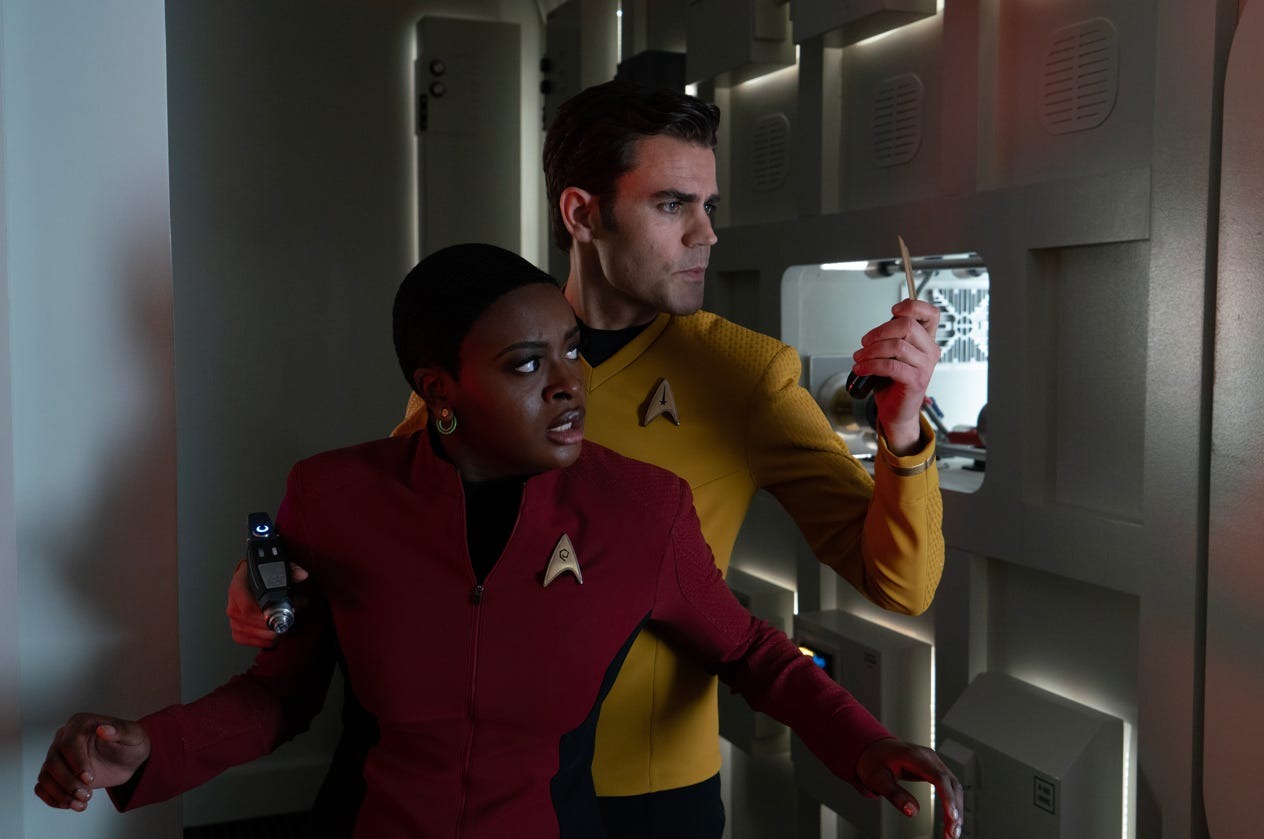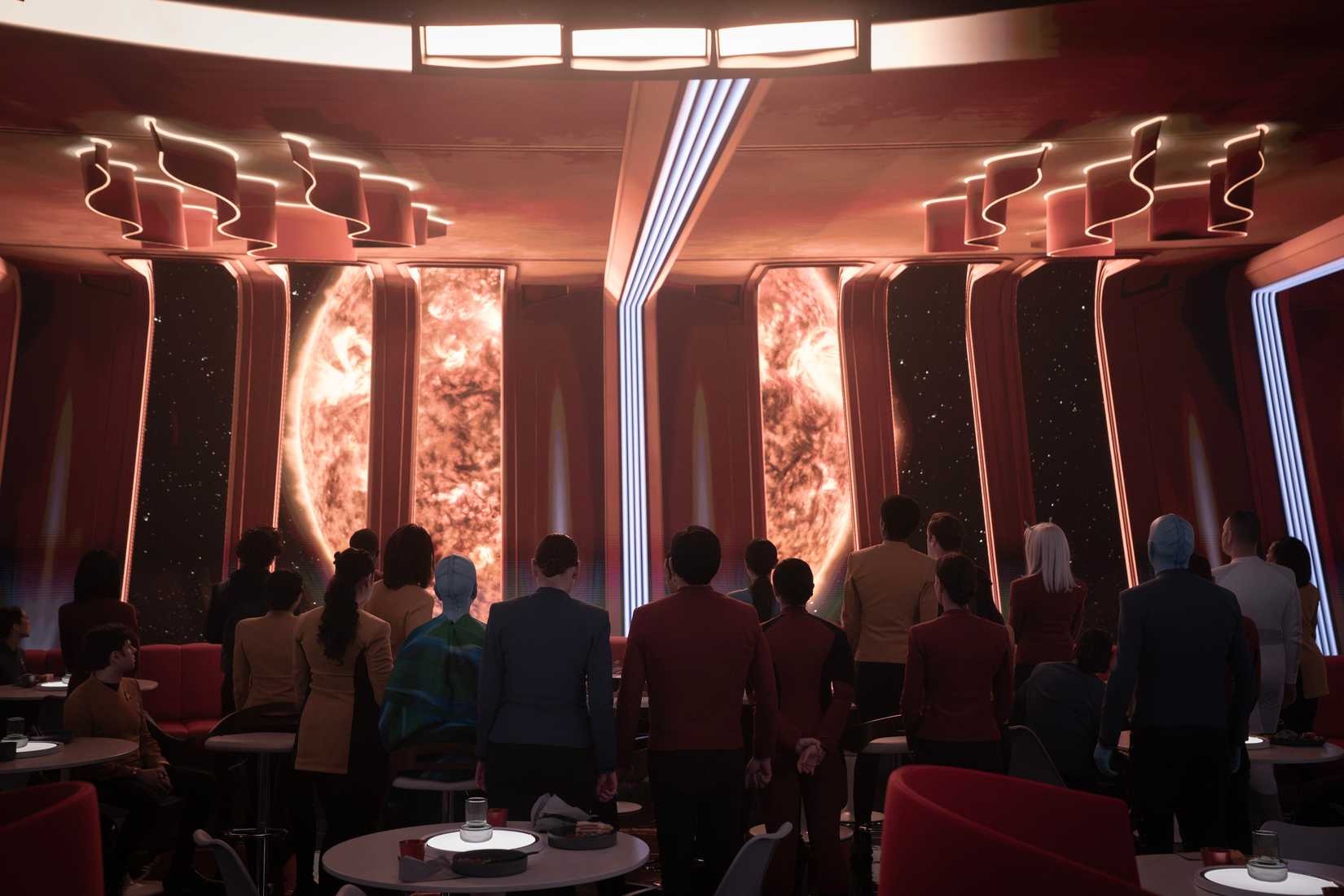A Mirror to the Stars: How Strange New Worlds Challenges Starfleet’s Utopian Ideal
Popular Now
 Grand Theft Auto V
Grand Theft Auto V
 Black Myth: Wukong
Black Myth: Wukong
 Among Us
Among Us
 Gacha Club
Gacha Club
 Stumble Guys
Stumble Guys
 Warframe
Warframe
 God of War Ragnarök
God of War Ragnarök
 Fortnite
Fortnite
 Garena Free Fire: Kalahari
Garena Free Fire: Kalahari
 EA SPORT FC 25
EA SPORT FC 25  For decades, the central tenet of the Star Trek franchise has been the unwavering belief in a bright, utopian future. Starfleet, the shining example of this ideal, has always been portrayed as a benevolent force of exploration, dedicated to peace and scientific discovery. But in its most thought-provoking episode to date, “What is Starfleet?”, Star Trek: Strange New Worlds boldly confronts this very idea, asking if the Federation’s mission of exploration and cultural exchange is, in practice, indistinguishable from a form of colonization.
For decades, the central tenet of the Star Trek franchise has been the unwavering belief in a bright, utopian future. Starfleet, the shining example of this ideal, has always been portrayed as a benevolent force of exploration, dedicated to peace and scientific discovery. But in its most thought-provoking episode to date, “What is Starfleet?”, Star Trek: Strange New Worlds boldly confronts this very idea, asking if the Federation’s mission of exploration and cultural exchange is, in practice, indistinguishable from a form of colonization.
This is not the first time Star Trek has grappled with the darker side of its utopian vision. Shows like Deep Space Nine and even Discovery have explored the Federation’s compromises and hypocrisies. However, “What is Starfleet?” is unique in its approach. It frames the debate through a documentary-style format, as an investigative journalist, Humberto “Beto” Ortegas, films the crew of the Enterprise on a seemingly routine mission. Beto, an outsider looking in, questions the very nature of their work, provocatively asking if a starship is a tool of exploration or a warship and if Starfleet officers are explorers or soldiers.
The Moral Gray of Exploration
The episode centers on a seemingly humanitarian mission: the Enterprise is tasked with delivering what is described as a “livestock” creature, the Jikaru, to a war-torn planet. But Beto’s documentary-style narration frames the mission from a more cynical perspective. He questions the Federation’s motives for getting involved in a lopsided war and points to the Enterprise’s formidable arsenal, arguing that a starship is, at its core, a weapon of war. He even goes so far as to call the crew “colonizers” for inserting themselves into the affairs of a less-advanced civilization. This direct, unflinching accusation is something that has rarely been said with such a pointed narrative in a mainline Star Trek series.
The genius of the episode lies in its refusal to offer a simple answer. Beto’s skepticism is not portrayed as a simple-minded bias; it’s presented as a valid viewpoint. He’s asking questions that many fans have asked themselves. Is the Prime Directive, the golden rule of non-interference, truly enough to prevent Starfleet from inadvertently influencing or even subjugating other cultures? Is a seemingly peaceful gesture, such as delivering a tool for “reconstruction,” a veiled act of control?
The episode’s strength is in showing the human side of the crew. They don’t have easy answers to Beto’s questions. They grapple with the moral complexities of their mission, and in the end, it’s their humanity, their willingness to risk their lives for the well-being of the Jikaru creature, that ultimately changes Beto’s mind. He comes to understand that Starfleet is not a monolithic, conquering force, but rather an organization made up of individuals who are trying their best to do the right thing in a morally ambiguous universe.
 A Legacy of Self-Reflection
A Legacy of Self-Reflection
In its third season, Strange New Worlds continues to prove that it is more than just a throwback to the classic Star Trek of the 1960s. It has a modern sensibility and a willingness to engage with contemporary issues of power, privilege, and cultural exchange. By asking if Starfleet are colonizers, the show is not trying to tear down the franchise; it’s strengthening it. It’s an act of self-reflection that reminds us that even in a utopian future, the path forward is never easy. It’s a testament to the show’s confidence and a promise that it will continue to explore the “strange new worlds” of its own legacy.










 A Legacy of Self-Reflection
A Legacy of Self-Reflection